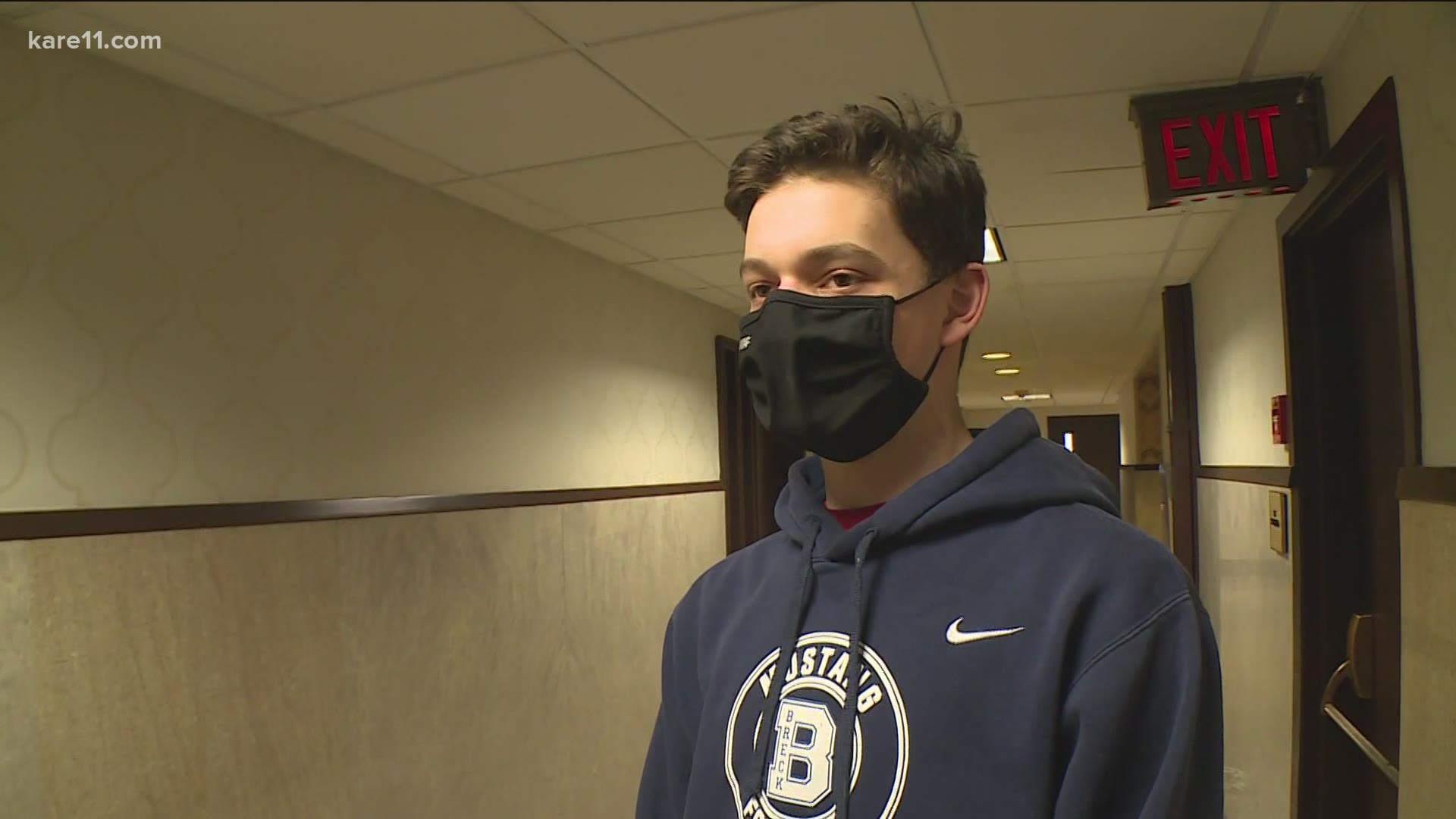MINNEAPOLIS — Now that the United States has secured enough COVID-19 vaccine doses to reach an estimated 300 million Americans by July, Dr. Anthony Fauci says parents could expect to have their school-aged children vaccinated by the time schools go back to class next fall.
The timeline is dependent on child vaccine trials that have already begun across the country, including here in Minnesota.
On Friday, 14-year-old Max Aronson became the latest to enroll in a Moderna adolescent COVID-19 vaccine trial at the Clinical Research Institute in Minneapolis.
"I feel great. I feel fine," Aronson said. "I was given a shot. There's a chance it was a vaccine and there is a chance it was salt water."
Max says he was excited to be part of the trial, and his mother, Martha Aronson, says she was excited for him.
Martha Aronson: "He's a patient on the other side of this office, in the allergy clinic, and they sent a letter to all of their patients. (Max) read the letter and came and set it on my desk, circled it, and said, 'I think we should look into this.'"
Kent Erdahl: "As a parent were you hesitant?"
Martha: "No, I was not. I've worked in the medical device industry my entire career and so I know how important doing clinical research is. Especially with what's going on in the pandemic, I thought, if there was a chance that he could be helpful, and he was willing - it's his choice entirely - then we should go do it."
The principal investigator for the Minneapolis trial, Dr. Gary Berman, says enrolling adolescent trials, which include ages 12 to 17, often takes months, but not this time.
"The support in the community is just tremendous," Berman said. "Enrollment has surpassed my expectations. In two to three weeks we had all of our names. We have people coming from Duluth. We have people coming from Madison. They're driving long distances to be able to participate. There is just a lot of interest in people wanting to get this fixed, getting it solved and they know that we need to collect data and they want to participate."
Nationwide, Moderna is looking to enroll 3,000 adolescents in its trial. Dr. Berman says two in three will be given the vaccine and the other third will receive a placebo. None of the families or the doctors will know who gets what, meaning efficacy data will remain unknown until the trial has concluded. But he says effectiveness is just part of the equation.
Dr. Berman: "Safety is huge. That's probably the most important. So far, it's very similar to adults. Minor arm, maybe soreness, maybe a little fever, nothing that we're concerned about."
Kent: "We've seen how COVID-19 affects older adults much more severely, but why is a vaccine for children important?"
Dr. Berman: "When we're talking about getting to herd immunity, you need 75% of the population to be vaccinated, so kids are a part of that picture."
Kids won't be jumping older adults in line and with trials still underway, Dr. Berman says the trials are a critical opportunity to collect data and get all the information gathered, before potentially vaccinating children more widely in the fall.
"At my school there is a lot excitement," Max said. "You know, we're in hybrid model right now and I think there's a lot of excitement for us to kind of get back and get with each other. I think kids my age are trying to do that in any way possible."
Dr. Berman: "My staff has been working six days a week, ten hours a day. We've been really working hard to try to get this out there. People can have a lot of faith in the fact that this was done correctly, carefully and diligently."
Kent: "What would you say to these families and these kids who are part of this?"
Dr. Berman: "I just want to thank them for participating because we can't do it without their assistance."
Max says it's an opportunity he didn't want to pass up.
"I'm just kind of happy that I'm able to help with the research," he said. "And hopefully it will be approved so that more people can get the vaccine."
Moderna and Pfizer both hope to have their adolescent trials wrapped up by summer, and they would then go to the FDA for emergency use authorization.
Dr. Berman says trials for even younger kids are already in the works, and could get underway in the next month. He says that incremental lowering of trial ages is part of the FDA process.

